The United Confederation of Earth
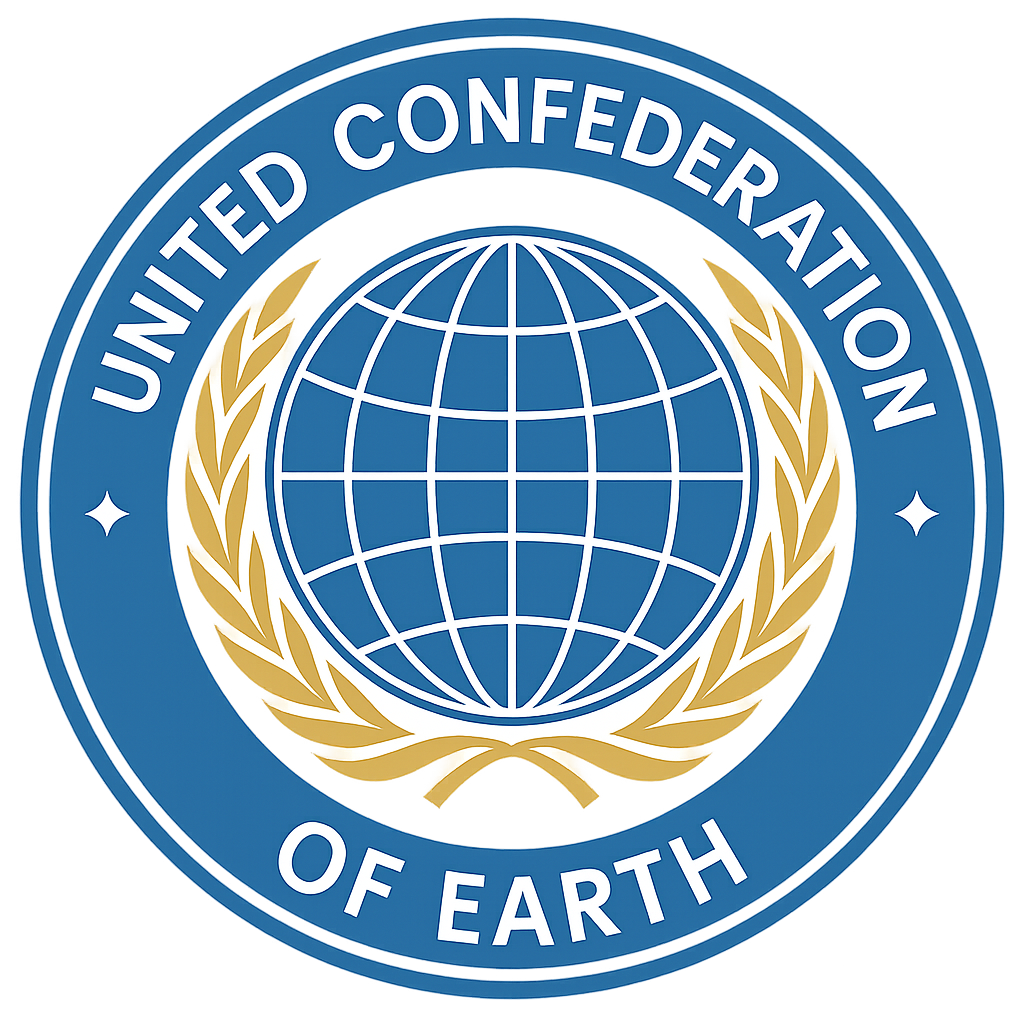
- Geneva, Switzerland – Primary Headquarters of the United Nations. Seat of the UNGA and UNGSC; legislative capital of the UCE.
- The Hague, Netherlands – Seat of the Supreme Court of Earth (SCE). International judicial capital; home of the Confederation's highest court.
- Lyon, France – INTERPOL Global Headquarters. The nerve center of international criminal enforcement and extradition operations.
- New York City, USA – UN Diplomatic Complex. Historic hub of international diplomacy and alternate UN session site.
- Colorado Springs, USA – HAVOC Command Center. Headquarters for metahuman threat analysis and deterrence programs.
- Caer Sgàilean, Isle of Skye – PSYOP High Tower & PPN Core Node. Site of the original Planetary Psychic Net hub; nerve center for psychic defense.
- São Paulo, Brazil – South American Regional Council Hub. Coordinates political, magical, and environmental initiatives for the continent.
- Cairo, Egypt – African Unity and Development Assembly (AUDA) Site. Hosts the African delegation and infrastructure harmonization councils.
The United Nations serves as the legislative branch of the United Confederation of Earth (UCE), composed of multiple governing bodies, each responsible for distinct global functions.
United Nations General Assembly (UNGA)
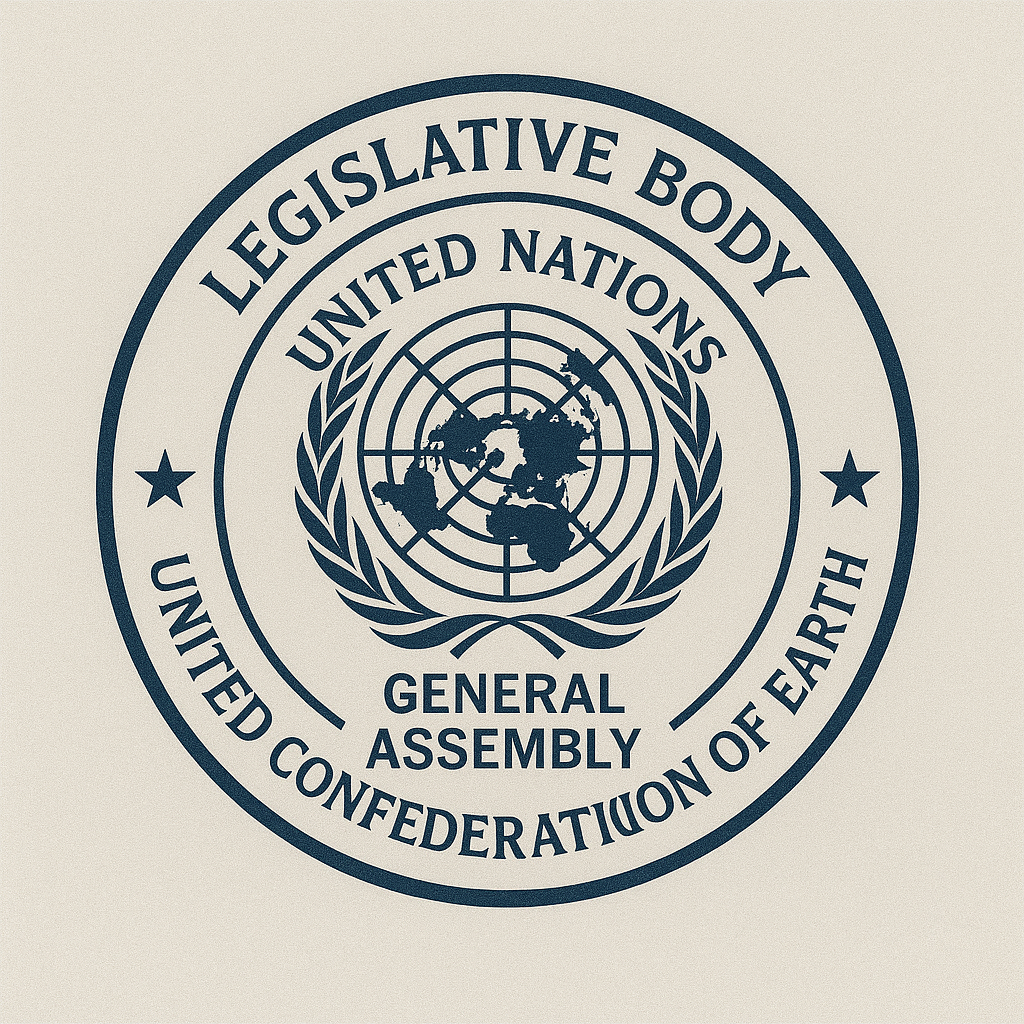
The UNGA is the core legislative body, where every Full Member state is granted one vote, regardless of its size, wealth, or power.
- A two-thirds (2/3) majority is required to pass a UN Binding Resolution, which carries the full weight of international law across all member nations.
- A simple majority may pass a UN Non-Binding Resolution, which reflects the will of the global community but lacks legal enforcement.
- The UNGA is responsible for drafting and enacting international legislation, treaties, and high-level policy frameworks.
United Nations Global Security Council (UNGSC)
The UNGSC is tasked with safeguarding global peace, security, and existential stability, including magical, metahuman, and extraterrestrial threats.
- Permanent Members: Appointed based on exceptional global influence—political, economic, military, magical, or metahuman.
- Rotating Members: 10 nations elected every 5 years by the UNGA.
To pass a Security Resolution:
- A 2/3 majority of all voting members is required.
- Any Permanent Member may exercise veto power—unless a 2/3 supermajority is reached, in which case the UNGA may override the veto by passing a Binding Resolution.
Current Permanent Members:
- China
- France
- Germany
- Russia
- United Kingdom
- United States
- Japan
- South Korea
- India
- Brazil
- Nigeria
- Seychelles
- South Africa
Other UN Councils and Assemblies
In addition to its primary organs, the UN maintains numerous specialized bodies—permanent or ad hoc—tailored to global concerns. These include councils on climate, technology ethics, magical rights, psychic regulation, off-world governance, and more. These bodies are formed and dissolved by the UNGA mandate.
The UN does not involve itself in local or domestic legislation. Its authority is focused on planetary-scale policy, especially in matters of human rights, interdimensional law, security, and sustainability.
Membership Tiers within the UCE
The United Confederation of Earth recognizes three categories of global membership, each with differing rights and responsibilities.
Full Members
- Recognize and submit to the authority of the UN, the Supreme Court of Earth (SCE), and INTERPOL.
- Hold full voting rights in the UNGA and may introduce or sponsor Binding Resolutions.
- Participate fully in international diplomacy, enforcement, and legislative processes.
- Maintain National Central Bureaus (NCBs) for INTERPOL operations and are subject to UCE-wide legal standards.
Observer Members
- Recognize the authority of the UN but do not submit to the jurisdiction of the SCE or allow INTERPOL operations within their borders.
- Do not vote in the UNGA, but may vote in special councils, assemblies, or advisory boards if granted that privilege by the UNGA or relevant charter.
- Typically includes non-sovereign magical societies (e.g., ICON), off-world settlements, or culturally autonomous territories seeking partial affiliation with the UCE.
Non-Aligned Entities
- Do not formally participate in UCE governance.
- INTERPOL has no jurisdiction in these regions unless a UN Global Security Council resolution is passed authorizing limited operations.
- These entities are not bound by UCE law, have no voting rights in any capacity, and typically maintain a policy of political and legal non-engagement with UCE institutions.
The Supreme Court of Earth (SCE) serves as the highest judicial authority within the United Confederation of Earth (UCE). It was established from the remnants of the former International Criminal Court, reformed and empowered to adjudicate cases of global and intergovernmental significance. All rulings of the SCE carry the full weight of international law and are binding upon Full Member states of the UCE.
Jurisdiction and Scope
- The SCE does not intervene in routine civil or criminal matters handled by domestic courts.
- It exclusively addresses international legal disputes and cases involving:
- Acts of aggression or military invasion
- Retaliatory military operations
- Genocide and crimes against humanity
- Major magical, metahuman, or interdimensional threats
- Lesser infractions (e.g., commercial copyright disputes between two nations) are considered beneath the SCE's mandate.
Membership Compliance
- All Full Members of the UCE are legally bound by SCE rulings.
- Nations that refuse to recognize the SCE may still join the UCE as Observer Members, but forfeit voting rights in the UN and cannot host INTERPOL operations.
- Non-Aligned Entities remain outside the SCE’s jurisdiction entirely.
International Enforcement – INTERPOL
INTERPOL serves as the international law enforcement arm of the UCE, responsible for the investigation, apprehension, and extradition of individuals charged with violations of international law under SCE jurisdiction.
Leadership & Oversight
- Governed by:
- 1 President
- 3 Vice Presidents (each representing a global region)
- 9 Delegates elected by the National Chief Council
- The President oversees global operations and may only be overruled by the UNGA or an SCE ruling.
National Chief Council
- Every Full Member nation appoints a National Chief INTERPOL Officer (NCIO) to represent its interests.
- The Council:
- Approves operational policies and annual budgets
- Elects INTERPOL’s leadership
- Passes internal resolutions via a two-thirds majority vote
Operational Structure
- INTERPOL officers are assigned to National Central Bureaus (NCBs) embedded within national law enforcement or justice ministries.
- Officers rotate across countries every three years to ensure impartiality and global knowledge exchange.
- NCIOs coordinate INTERPOL activity within their own countries, particularly in enforcing SCE rulings.
Authority by Membership Tier
| Membership Tier | SCE Jurisdiction | INTERPOL Operations |
|---|---|---|
| Full Members | Full Legal Authority | Full Enforcement Authority |
| Observer Members | Limited (advisory only without UN resolution) | May assist with UN Binding Resolution |
| Non-Aligned Entities | None | No legal or advisory authority |
- In Observer Member nations, INTERPOL and SCE operations require a UN Binding Resolution to have legal force. Without it, their role is strictly advisory.
- In Non-Aligned states, UCE entities have no authority, and individuals fleeing to these regions are effectively beyond the Confederation’s reach.

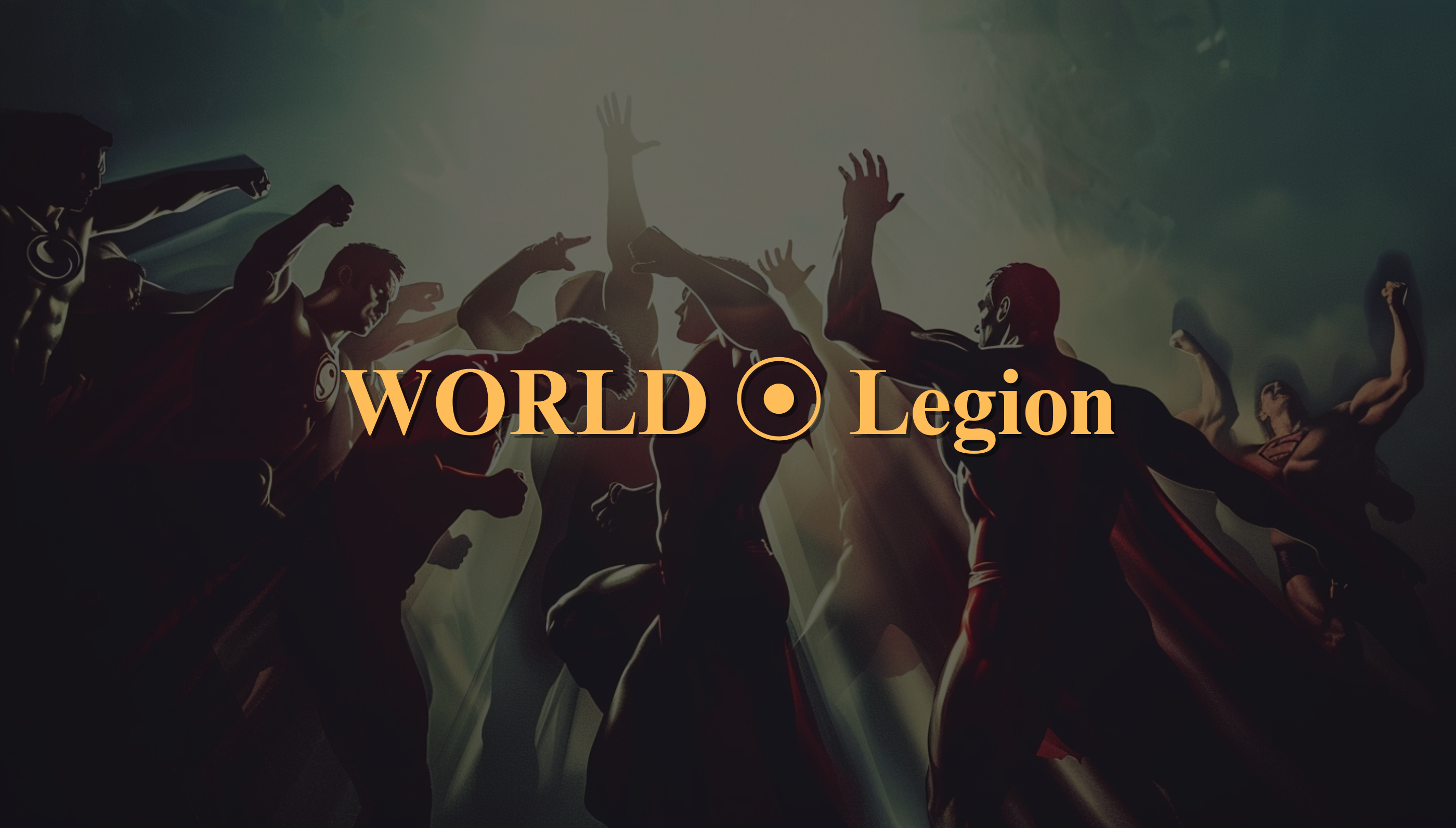
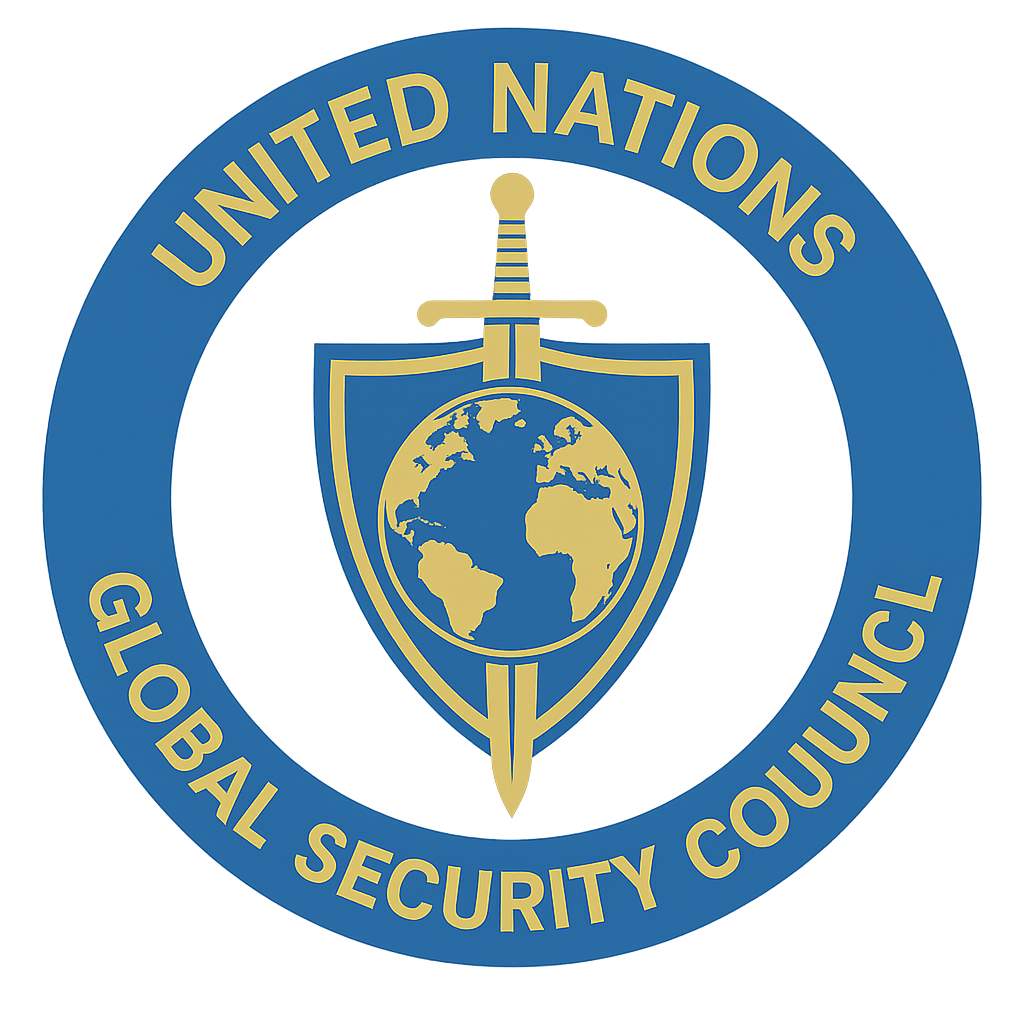
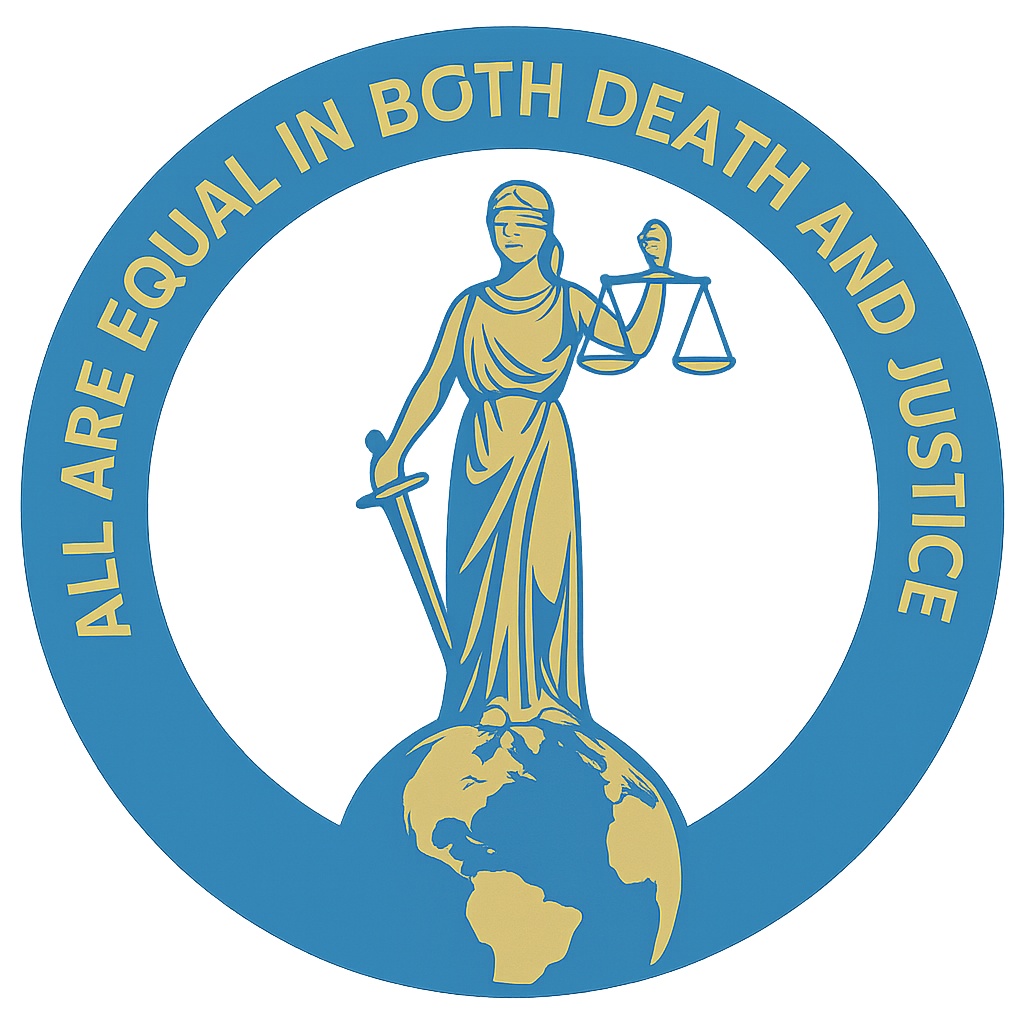

Comments